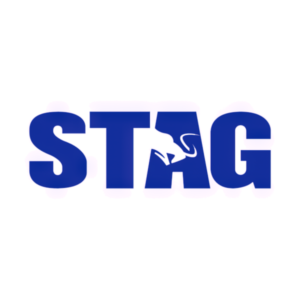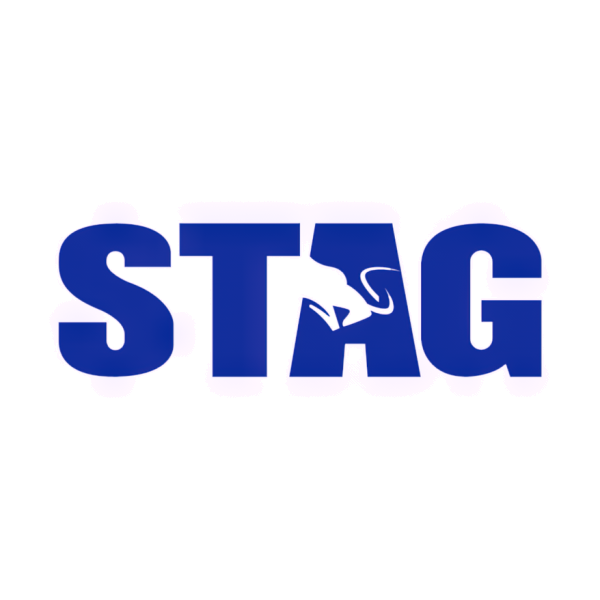Prologis (PLD -1.81%) is not only the largest owner of industrial real estate in the United States, but also the largest real estate investment trust, or REIT, of any kind. While the business itself is performing quite well, there are some fears regarding the state of industrial real estate as well as the interest rate environment, and these have caused the stock to fall by more than 20% from its 52-week high.
Here’s a rundown of how Prologis’ business is doing, why the stock is down, and why it could be a good idea to take a closer look at this fantastic company right now.
Prologis in a nutshell
Prologis is a massive REIT that specializes in logistics properties such as warehouses and distribution centers. If you’ve ever seen one of those massive Amazon.com (AMZN -1.44%) fulfilment centers, that’s the type of property I’m referring to. In fact, Amazon is Prologis’ largest tenant by a wide margin.
As of the latest quarter, Prologis owns more than 1.2 billion square feet of rentable space located on four continents around the world. It leases space to 6,700 different customers, with top tenants (in addition to Amazon) including Home Depot (HD 0.69%), FedEx (FDX -1.52%), and UPS (UPS -2.75%). Just to put this scale into perspective, $2.7 trillion worth of goods moves through Prologis’ properties every year, representing nearly 3% of the world’s GDP. This is a big real estate business.
Why is Prologis down so much?
There are a few valid reasons Prologis is down more than most other REITs. For one thing, there are some concerns that overbuilding during the COVID-19 pandemic combined with economic worries will lead to falling occupancy. And to be sure, Prologis’ occupancy has fallen from 97.7% to 95.9% over the past two years, and its retention rate is 70 basis points lower. To be sure, this feels like more of a normalization after an excellent few years, but it is definitely worth watching.
More importantly, the persistent high-interest rate environment has put pressure on commercial real estate values. I won’t get too deep into the details, but capitalization rates (cap rates) are a solid indicator of property values. Lower cap rates mean higher property values relative to rental income. In a nutshell, think of a cap rate as the property’s net rental income as a percentage of its market value.
Since 2021, industrial real estate cap rates have increased from 4.1% to about 5.4%, and the general idea is that this means industrial property values are down by about 25%.
Reasons to take a closer look
Despite the legitimate concerns and headwinds, there are some good reasons why Prologis could be a great stock to buy right now. Just to name a few:
- E-commerce demand continues to rise. Only about 22.5% of retail sales are e-commerce in Prologis’ markets. This percentage has been steadily growing for the past two decades and is expected to reach nearly 30% by 2028. E-commerce needs three times as much warehouse space than brick-and-mortar retail.
- Prologis has been quietly getting into the data center real estate business, and is targeting $7-8 billion in development spending by 2028. This could allow the company to be a big beneficiary of the AI investment boom.
- Prologis has a great track record of creating shareholder value through development, estimated at $13.6 billion so far. It sees the potential for over $40 billion in future development, which could be a big growth driver going forward.
- While interest rate cuts are likely to be slower than initially expected in 2025, the overwhelming consensus is that the direction of interest rates will be lower for the next several years. This not only means lower borrowing costs but should also help lower cap rates and therefore make industrial properties more valuable.
- Prologis has lots of embedded rent growth in its portfolio. In simple terms, industrial property rent surged during the COVID-19 pandemic, but many of the company’s leases were initiated before it started. As the older leases expire, we’ll see rental income increase. In fact, Prologis estimates that market rates are about 35% more than it is currently receiving from its properties, on average.
Finally, Prologis trades for a significant discount to its historical price-to-FFO (funds from operations) valuation. While there could certainly be short-term headwinds in the real estate space, Prologis is an extremely solid business, and it looks like an excellent time for patient long-term investors to buy.
John Mackey, former CEO of Whole Foods Market, an Amazon subsidiary, is a member of The Motley Fool’s board of directors. Matt Frankel has positions in Amazon, FedEx, and Prologis and has the following options: short December 2024 $115 puts on Prologis and short January 2025 $110 puts on Prologis. The Motley Fool has positions in and recommends Amazon, FedEx, Home Depot, and Prologis. The Motley Fool recommends United Parcel Service and recommends the following options: long January 2026 $90 calls on Prologis. The Motley Fool has a disclosure policy.








